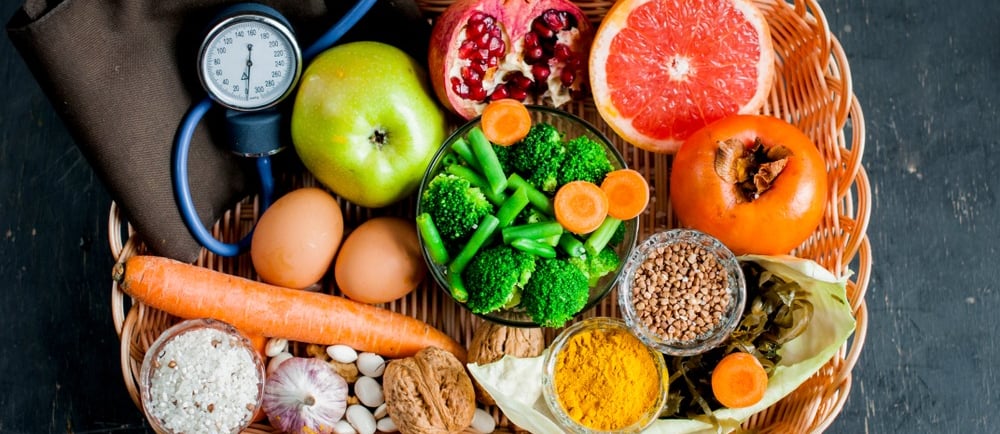Foods that Quickly Reduce High Pressure and Their Benefits for Body Health
ARTICLE INFORMATION
5/27/20243 min read


Fruits that Reduce High Pressure
Fruits play an important role in lowering high blood pressure. One fruit that is very effective is banana. Bananas are rich in potassium, a mineral that helps balance sodium levels in the body. This balance is important because high sodium levels can cause blood pressure to rise. By consuming bananas regularly, potassium can help reduce sodium retention, thereby lowering blood pressure.
Kiwi is also a fruit that is useful for lowering high blood pressure. Kiwi contains high levels of antioxidants and vitamin C. The antioxidants in kiwi help fight free radicals that can damage blood vessel walls, while vitamin C plays a role in repairing and maintaining healthy blood vessels. This combination makes kiwi effective in improving blood vessel function and, ultimately, helps lower blood pressure.
Watermelon is another fruit known for its benefits in lowering high blood pressure. Watermelon contains lycopene and citrulline, two compounds that are good for heart health. Lycopene is an antioxidant that helps protect cells from damage, while citrulline helps increase nitric oxide production in the body. Nitric oxide functions to dilate blood vessels, which can increase blood flow and reduce blood pressure. Therefore, consuming watermelon regularly can help keep blood pressure stable.
By integrating fruits such as bananas, kiwi, and watermelon into our daily diet, we can utilize their nutritional content to lower high blood pressure naturally. It not only helps manage blood pressure but also provides many other health benefits, including improving heart health and improving blood vessel function.
Vegetables that are Effective in Reducing High Pressure
Several types of vegetables have been shown to be effective in lowering high blood pressure, making them ideal choices to include in your daily diet. Among these vegetables, spinach, beets and celery stand out for their nutritional content and special compounds.
Spinach is a rich source of magnesium and potassium, two minerals known to help reduce blood pressure. Magnesium plays a role in relaxing blood vessels, while potassium helps balance the effects of sodium in the body, which often contributes to high blood pressure. To get the maximum benefits from spinach, it can be consumed in the form of fresh salads, smoothies, or as an addition to soups and stir-fries.
Beets, on the other hand, contain nitrates which can help widen blood vessels and improve blood flow. The nitrates in beets are converted into nitric oxide in the body, which functions as a natural vasodilator, helping to lower blood pressure. Beets can be enjoyed in juice form, roasted, or added to salads and other dishes.
Celery contains compounds called phthalides that help relax the muscles around blood vessels, allowing for better blood flow. Research has shown that regular consumption of celery can contribute to lowering blood pressure. Celery can be eaten raw as a snack, added to salads, or used as an ingredient in soups and juices.
Integrating spinach, beets and celery into your daily diet can provide significant benefits in managing high blood pressure. In addition, consuming these vegetables in fresh or minimally processed form will ensure that the nutrients and active compounds are maintained, providing maximum effectiveness in lowering blood pressure.
Additional Health Benefits of Blood Pressure-Lowering Foods
Foods that help lower high blood pressure are not only beneficial for keeping blood pressure stable, but also offer a variety of additional health benefits. For example, bananas and spinach are excellent sources of fiber, which can help improve digestive health. The fiber in bananas helps improve the digestive system and prevent constipation, while spinach contains fiber which can support the growth of good bacteria in the intestines, improve metabolism and increase nutrient absorption.
In addition, kiwi and beets are rich in vitamins and antioxidants that can strengthen the immune system. Kiwis contain high amounts of vitamin C, which is known for its ability to strengthen the immune system and fight infections. Beets, on the other hand, contain betalain, a powerful antioxidant that helps protect cells from oxidative damage and reduces inflammation in the body. Regular consumption of these two foods can help the body better fight disease and maintain overall health.
Watermelon and celery are excellent foods for maintaining body hydration because of their high water content. Watermelon is made up of about 92% water, which not only helps keep the body hydrated but also provides vitamins A, C, and B6 as well as lycopene, an antioxidant that is beneficial for heart health. Celery, with a water content of around 95%, also contains electrolytes which help maintain fluid balance in the body, as well as fiber and vitamin K which support bone health and digestion.
By including these foods in the daily diet, one can not only control high blood pressure but also gain various additional health benefits that can significantly improve the quality of life. Understanding these benefits can encourage us to be more conscious in choosing the foods we consume every day to achieve optimal health.
Contact US
Bypass Prof. Dr. Ida Bagus Mantra No.99, Negari, Kec. Banjarangkan, Klungkung Regency, Bali 80752
(0366) 5684001/5584000
grhabhaktimedika@gmail.com
Copyright © 2025 Grha Bhakti Medika Hospitals.
WA: 0821-4607-8245 - (Front Office)
